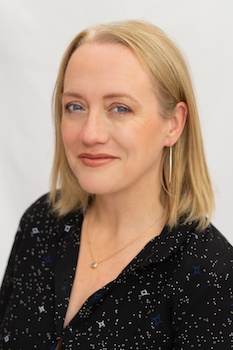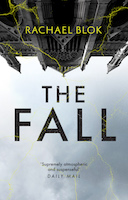
The Fall takes place the week before Easter when a man falls from the tower of St Albans Cathedral in the dead of night. Is it suicide? Was he pushed? Willow, a visitor to the cathedral, witnesses his death, and the twisty path of the fall unwinds from the prologue.
In many ways, The Fall is the culmination of all four novels of the DCI Jansen series, not simply in terms of completing the four seasons in which each one is set, but also in terms of locations; the cathedral being at the heart of the city and presiding over the park where Under The Ice was set, near the Roman Theatre of Into The Fire and overlooking the city of The Scorched Earth.
The novel is about how the past influences our present and there are few locations that claim a history as long and as bloody as the site of St Albans Cathedral. I fell in love with writing about scenes in the Cathedral when I wrote the Midnight Mass scene in Under the Ice, and during research, I was lucky enough to have a private tour, including a trip to the top of the tower, and find out some of its secrets. Research can be one of the hardest parts of writing, but this time it was an absolute pleasure. One of the details I discovered is that the walls and plaster of the cathedral contain horse hair – it was used historically in building, and the cathedral has been built, rebuilt and developed for over 10,000 years. There is even a part of the wall where the horse hair protrudes – it was a joy to be able to add some of these details to the novel and develop the sense of place.
With a literal fall at the start of the novel, it would be impossible not to reference the religious ‘fall’ of mankind, and there is no better text to do this with than Paradise Lost. Within the novel, an exhibition takes place featuring some of the original draft manuscripts of the poem. It allows a reflection on how religion and our approach to it has changed over the years. There are only two female characters in Paradise Lost – Sin and Eve – against a background of male figures. At times, they are the figures most punished and most blamed. The plot of The Fall begins with a story of a female who has taken the blame for the death of her mother – the circumstances for which, nowadays, we would offer sympathy. It was, at times, an emotional story to write.
It’s also a novel about women and mental health. I’ve long been fascinated and equally horrified by how frequently women have been punished in our not so recent past, for their position in society as defined by the male figures in their lives: do they agree with their husbands and fathers, are they married. Even as little as sixty years ago, women were often considered mentally unwell for being pregnant out of wedlock or for not wanting to have children. The research into mental health hospitals has been a lot less joyful than touring the cathedral. Reading the many stories of past patients has been heart-breaking at times and while the novel is entirely fictional, I’ve worked hard to root the plot in a realistic history.
From Rotterdam originally, DCI Jansen’s point of difference has always been the fact that he is a quiet, forthright Dutchman – one who doesn’t like to be the centre of attention and doesn’t always slide into the middle-class manners of the cathedral city. Over the four novels, we see him considering a return to Rotterdam, hear about how he was orphaned at a young age and see him struggle when his family are in a car accident. In this novel, he is put under pressure when one of his own team faces a crisis. Resolutely loyal and methodical, he has been a joy to write. In The Fall, he doesn’t take centre stage, but I’ve demonstrates his quiet compassion in his choices, particularly at the end of the novel. Each novel in the series has had a male and female point of view, and here, Willow and Alice are the two other voices. Alice is also a child. Her perspective in the novel is one of my favourites across all the books.
This is my lockdown novel – not inspired by lockdown, but the whole thing was written during lockdown two and three. The second half of the novel was written while home-schooling two children. If you had asked me before starting, I would have told you I wouldn’t be able to write a postcard. Watching this book head towards publication and actually holding it in my hands has felt like my own tiny writing miracle.

‘The Fall’ by Rachael Blok published April 14, 2022 Hbk by Head of Zeus at £18.99
Rachael Blok will be speaking at Books on the Hill, St Albans with Harriet Tyce on 10th May, Aye Write Festival in Glasgow on 21st May and Harrogate International Crime Festival in July.